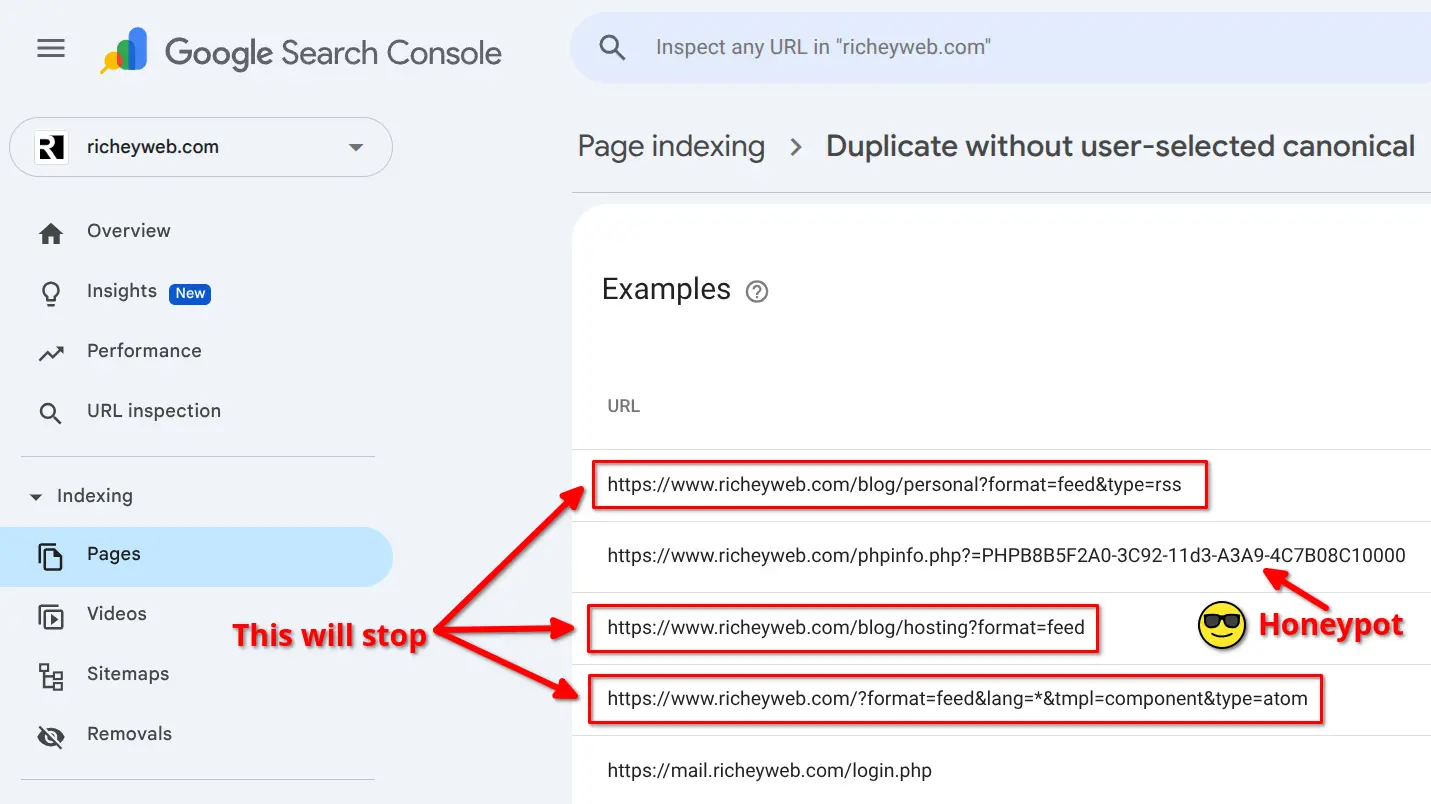System - Link Canonical Version 5.3.0+ introduces support for adding canonical URLs to RSS feeds via HTTP Link headers, addressing Google Search Console's "Duplicate without user-selected canonical" errors for feed URLs (e.g., https://www.example.com/blog?format=feed&type=rss). Since RSS feeds lack an HTML <head> for traditional <link rel="canonical"> tags, the plugin now dynamically injects a Link header per RFC 5988 to specify the preferred canonical URL.
Why This Matters
-
Resolves GSC Errors: Prevents Google from flagging RSS feed URLs as duplicates by explicitly declaring the canonical URL (e.g., https://www.example.com/blog).
-
SEO Benefits: Consolidates crawl budget and ranking signals to the correct page, avoiding penalties for duplicate content.
-
Standards-Compliant: Uses the Link header as recommended by RFC 5988, ensuring compatibility with modern search engines.
Keeping up with the Joneses (WordPress)
Let’s be real: WordPress users with Yoast have been smugly sidestepping these RSS duplicate issues since 2020, waving their HTTP Link headers like they invented SEO. Meanwhile, Joomla developers were left wrestling with GSC errors and no clear fix—until now. RicheyWeb’s System - Link Canonical steps up, delivering a no-nonsense solution that doesn’t just match Yoast’s trick but does it with the kind of precision and control only a dedicated Joomla plugin can.
WordPress might have gotten there first, but RicheyWeb is leveling the playing field.
How It Works
When an RSS feed is detected (e.g., URLs with ?format=feed&type=rss), the plugin:
-
Identifies the base content URL (e.g., strips ?format=feed&type=rss to resolve to https://www.example.com/blog).
-
Adds an HTTP Link header to the response, such as:
Link: <https://www.example.com/blog>; rel="canonical"
-
Ensures seamless integration with existing plugin settings for canonical URL management.
Configuration
No additional configuration is required. The plugin automatically detects RSS feed requests and applies the appropriate Link header based on your existing item URL
Example
For an RSS feed URL like https://www.example.com/blog/personal?format=feed&type=rss, the plugin will add:
Link: <https://www.example.com/blog/personal>; rel="canonical"
This tells Google to treat the base URL as the canonical version, resolving duplicate content warnings.
